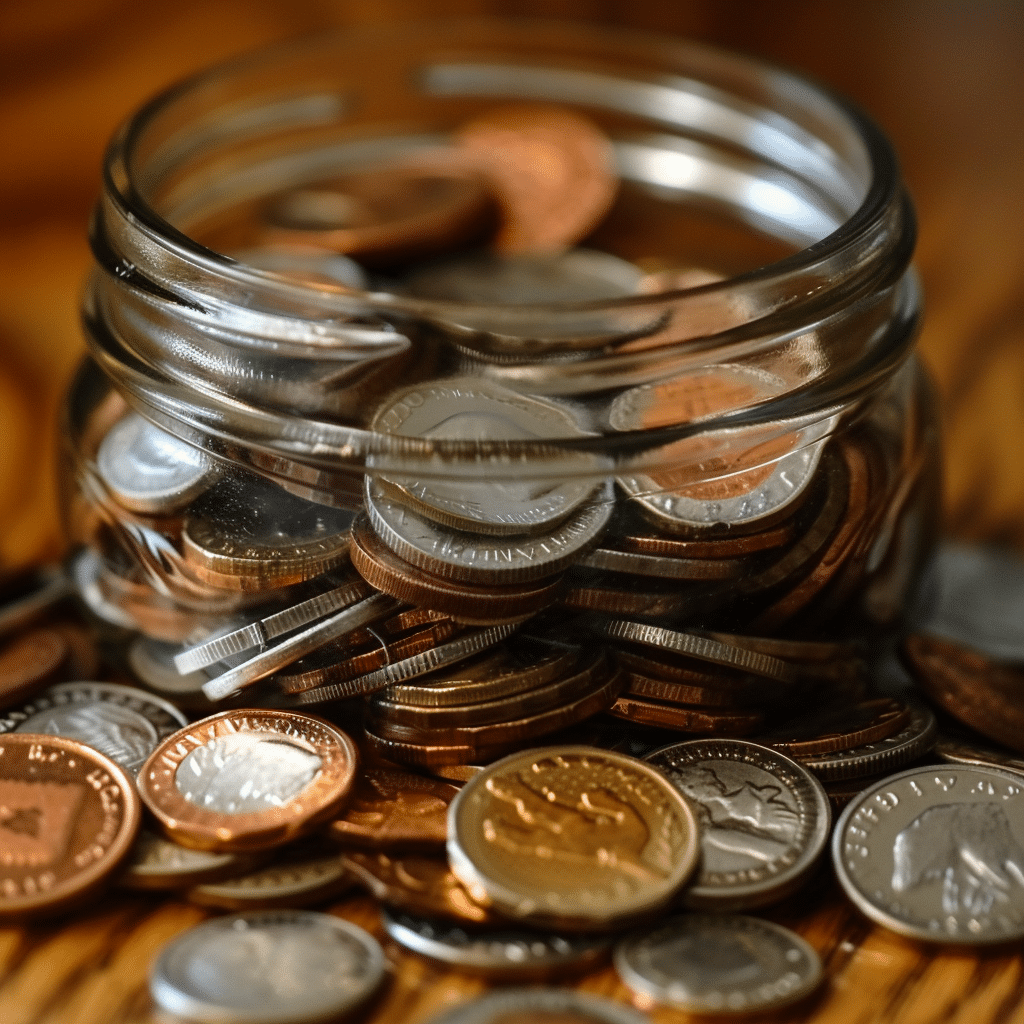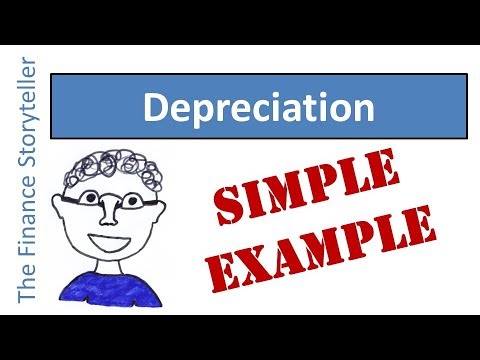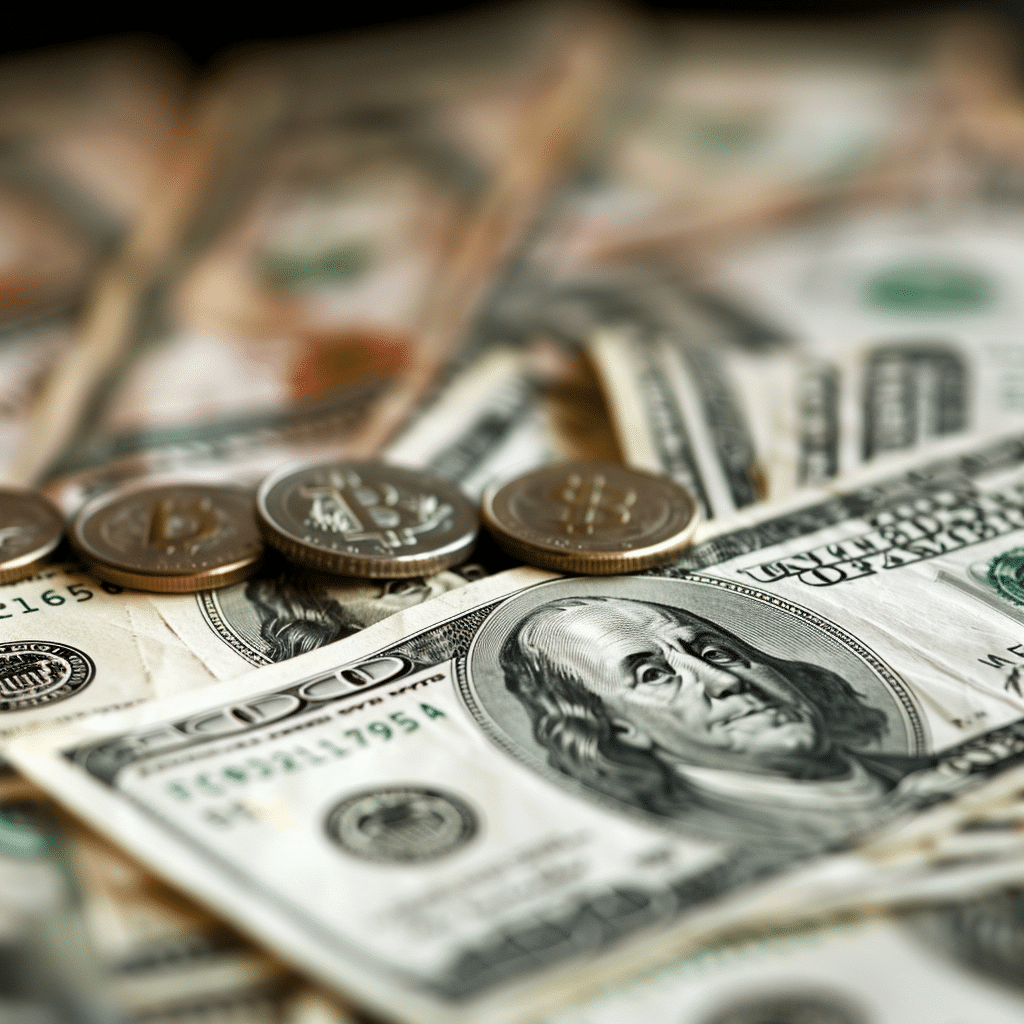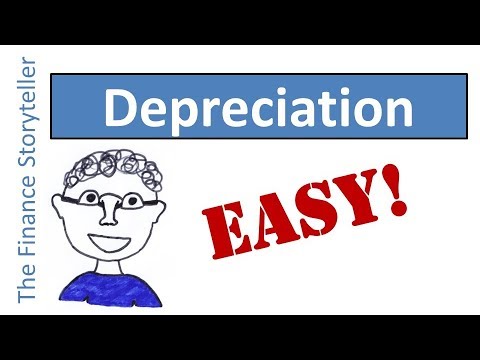In the dynamic landscape of finance and investment, depreciation often slides under the radar, quietly impacting the gears of business more profoundly than many realize. Understanding depreciation is like discovering a superpower: it’s much more than just a reduction in value—it’s a strategic element that can significantly reshape fiscal narratives and investment horizons.

Understanding Depreciation: More than Just a Reduction in Value
To get a foothold on this concept, let’s dive into the nitty-gritty of the depreciation meaning. In economic terms, the monetary value of an asset decreases over time due to use, wear and tear, or obsolescence. Depreciation essentially captures the declining utility of an asset—a concept of vital importance to stakeholders across the board.

Shocking Fact 1: Depreciation Impacts Tax More Than You Realize
Now, hold onto your hats! Depreciation isn’t just a mundane line item on a balance sheet—it’s a powerhouse in the tax domain. Let me paint you a picture: through depreciation deductions, businesses can reduce their taxable income significantly. This isn’t pocket change we’re talking about—Apple, for instance, effectively decreases its tax burden each year by claiming depreciation on its vast asset portfolio.
Looking deeper, companies that ignore the potential windfall of depreciation deductions may find themselves at a serious disadvantage. It’s vital to understand this mechanism to tap into a tax reduction strategy that can shift from ‘ow!’ to ‘wow!’ in your financial standings. If anyone is in need of help navigating these tax waters, first-time home buyers in NJ, for example, could benefit from insights into the impact of real estate depreciation on their tax returns.

Shocking Fact 2: How Different Industries Depreciate Assets Vastly Differently
The method to the depreciation madness varies wildly among industries. Each sector has its bespoke approach, with tech industries often sprinting through asset lifecycles using accelerated methods, compared to more stable industries that follow the sympathetic rhythm of the straight-line method.
For the real estate moguls among us, methods like those employed by major REITs signify a profound impact on investment decisions and the profitability puzzle. A firm’s choice of depreciation methodology isn’t just a technicality—it can make or break the financial performance song that investors dance to.
Shocking Fact 3: Depreciation Methodologies Can Drastically Affect Company Valuations
Ever wondered how two companies in the same industry can have starkly different valuations? The secret sauce often lies within their financial statements—depreciation methods chosen. Take two automotive giants, General Motors and Tesla, for example. Their approach to depreciation can drive their valuations into entirely different neighborhoods.
Investors may get more than they bargained for as these valuation variances can be shockingly counter-intuitive. For instance, a company might seem less profitable due to higher depreciation expenses, but in reality, it might be cleverly managing its tax liabilities and reinvestment strategy.
Shocking Fact 4: Cryptocurrency and Intangible Assets Are Redefining Depreciation Meaning
Welcome to the modern jungle of asset depreciation, where intangible assets and cryptocurrency are stirring up a storm. Microsoft, with its hefty suite of intellectual property and software, can attest to the high-wire act of depreciating something as ethereal as a software license.
As if tangible asset depreciation wasn’t complex enough, the conversation on how to depreciate cryptocurrencies opens a Pandora’s box of regulatory debates. We’re not just redefining depreciation here; we’re reshaping the entire financial reporting landscape.
Shocking Fact 5: Depreciation Isn’t Always a Loss – Sometimes It’s a Strategic Financial Play
Brace yourself for an ironic twist: sometimes, depreciation is a magic wand in a company’s financial playbook. Smart cookies like Amazon don’t just grudgingly accept depreciation; they wield it, extending the lifecycle of assets and leveraging depreciation to their advantage.
This strategy transforms depreciation from a grim reminder of asset decay to an ingeniously crafted cog in cash flow management and reinvestment plans. It’s time to debunk the myth that depreciation is an ominous black cloud over a company’s financial health. In truth, it can be a silver lining!

Innovative Conclusions: Rethinking Depreciation in Business and Investment
As we wrap our heads around these revelations, depreciation emerges not simply as an accounting requirement but as a multifaceted lever that can be pulled to influence business and investment outcomes. Far from being a mere acknowledgment of an asset’s aging, it’s a testament to the ever-evolving nature of financial intelligence.
With these shocking facts, we encourage entrepreneurs, homeowners looking into the details of an earnest money meaning, financial analysts, and investors to view depreciation through a new lens. Establish a fresh appreciation for the depreciation meaning in your strategic thinking, and you may just uncover a hidden ace up your sleeve for your financial endeavors.

So folks, let’s not depreciate the value of understanding depreciation. Instead, leverage this expert know-how to fortify your financial foundation, and remember, the key to mastering your assets’ lifecycle is recognizing that there is more than meets the eye in the art of depreciation.
Unwrapping the Mystery: Depreciation Meaning Explained
Welcome to the fun zone – where depreciation isn’t just a dry financial concept, but a springboard for some truly surprising trivia! Buckle up as we dive into the world of depreciation, revealing facts that are as intriguing as witnessing the unexpected dance moves of Nfl Cheerleaders.
When Your Assets Do the Limbo!
Ever watched josh christopher sink a basket and thought about how assets lose value like defenders lose their balance? That’s depreciation for ya! It’s like every day, your assets are doing the limbo, dropping lower and lower in value, until they’re old news just like last season’s sports stats.
If Walls Could Talk: Depreciation Edition
Depreciation isn’t just for the big league, it’s a home game too, especially for first time home buyer nj. From the moment you turn that key, your shiny new home starts to age – kind of like cheese, but with less aroma and more property tax implications. It’s not all doom and gloom though! Depreciation can be the silver lining at tax time, offering sweet deductions that could make a tax accountant smirk with glee.
Tenants vs. Time: The Depreciation Showdown
You know what’s more confusing than explaining the offside rule to a novice? Yep, it’s grasping the Tenants meaning in relation to depreciation! When you’re renting out a place, every lease minute counts down to the inevitable – the property losing its youthful glow, and your rental equipment following suit. But hey, it’s not all bad. For landlords, this slow-mo disappearing act is an expense on paper, even if the old couch still feels comfy as ever.
A Beveled Edge on Depreciation
Ever heard of “bevel” in woodworking where edges meet at an angle other than 90 degrees? Well, depreciation is a bit like that beveled edge, giving a slanted perspective on assets’ value. It’s an accountant’s way of acknowledging that what was once sharp and edgy, over time, becomes as blunt as a toddler’s safety scissors – except it’s your assets taking the trim.
Deluxe Edition – Depreciation with Benefits
Here’s a twist: sometimes, depreciation is kind of like finding an extra fry at the bottom of the bag! For businesses, a well-strategized depreciation schedule is like striking oil – in accounting terms, at least. It turns the frown of asset loss upside down by offering opportunities to reinvest the “saved” money from tax deductions into spiffy new assets, keeping the cycle spinning like a DJ’s turntable.
Trade or Fade? In Lieu of Depreciation
Ever wondered what lieu definition has to do with depreciation? Well, it’s about swapping. Instead of the typical wear and tear scenario, you might trade in an asset before it goes the way of the dinosaurs. It’s a choice: watch the value fade away or trade it in lieu of watching that value do a magic disappearing act.
The Morale of Depreciation Tales
Lastly, don’t let your spirit do the depreciation dance! Remember how harvey Guillen can turn any scene into a laugh riot? Well, use that energy to face depreciation head-on. It’s not all about loss; it’s a strategic component of financial planning – as integral as knowing your ABCs or your delinquent meaning in the finance world.
So there you have it, folks! Depreciation isn’t just some sleepy concept hidden in dusty accounting textbooks – it’s alive and kicking, full of surprises, sometimes as shocking as a plot twist in your favorite show. Keep these facts handy, and you’ll be dropping depreciation knowledge bombs like a pro!

What is depreciation in simple words?
What is depreciation in simple words?
Oh, man, depreciation’s like that sneaky little gremlin that nibbles away at the value of your stuff over time, especially if you’re talking about things like cars or gadgets – anything that gets old and less shiny. Picture it this way: you buy a brand spanking new lawn mower, but as you use it, it starts to show its age and isn’t worth as much dough anymore – that’s depreciation in a nutshell.
What is an example of depreciation?
What is an example of depreciation?
Let’s say you snagged a cool machine for your business – a real gem. Over time, though, it gets used, and well, not-so-new. So if your company wants the books to reflect getting their money’s worth, they might decide to depreciate the cost of this gear using the declining balance method – think of it like saying it gets 30% less valuable each year. That’s how you tackle depreciation in real life!
What does it mean to depreciate?
What does it mean to depreciate?
To depreciate, in plain old talk, is like saying, “Hey, the price tag on this thing is taking a nosedive!” If something depreciates, its value is dropping, often because it’s been loved a little too much (wear and tear) or it’s just not the hot item it used to be.
Is depreciation an expense or income?
Is depreciation an expense or income?
Alright, when it comes to the world of accounting, depreciation is definitely an expense. It’s like a fancy way of saying that your stuff loses value over time and you’ve gotta account for that loss when you’re doing the math for your business at the end of the year.
Is depreciation a good or bad thing?
Is depreciation a good or bad thing?
Well, that’s a head-scratcher. Depreciation isn’t exactly a high-five moment ’cause it means your assets are losing value. Bummer, right? But hold up, it’s not all doom and gloom! In the biz world, it can actually help your tax situation since it’s a non-cash expense that reduces your taxable income. So, it’s kinda like a silver lining to a cloudy situation.
How does depreciation work?
How does depreciation work?
It’s like slicing up the cost of, say, your fancy new office computer over its useful life, so you’re not just plopping down the whole expense in year one. You spread out the cost, and each year, take a bit as an expense on your income statement. It’s the accounting world’s way of recognizing that what you buy for your biz doesn’t stay shiny and new forever.
Can you depreciate your home?
Can you depreciate your home?
Well, here’s the kicker – if your home’s your personal pad, no dice, you can’t depreciate it. But if you’re the landlord type, renting out property, then you betcha, you can depreciate the cost of the building (not the land) over time as part of your rental biz expenses.
Which asset Cannot be depreciated?
Which asset Cannot be depreciated?
Land – it’s the one thing they’re not making more of! You can’t depreciate it since it doesn’t wear out or get used up the way your brand-new truck or computer does. Think of it as the ever-steady tortoise in the race – it just chills, doesn’t lose value from wear and tear.
How is depreciation calculated?
How is depreciation calculated?
Hoo boy, getting into the nitty-gritty, are we? Deprecation’s calculated by taking the cost of what you bought, subtracting any salvage value (what it’s worth after you’re done using it), and then spreading that amount over the asset’s useful life. Sounds like a mouthful, sure, but it’s how to keep things cool with the tax folks.
Is depreciation good or bad for taxes?
Is depreciation good or bad for taxes?
When it comes to taxes, depreciation is like that coupon you forgot you had – turns out, it’s kinda awesome! It reduces your taxable income because it’s considered an expense. So, while it doesn’t put cash in your pocket, it’s a solid strategy for paying less to Uncle Sam.
Should I depreciate my assets?
Should I depreciate my assets?
If you’re running a business, depreciating your assets is like putting on sunscreen – it’s a smart move that provides long-term protection. It evens out your expenses over time and can give your tax bill a little trim. Just make sure it makes sense for the assets you’re sweating over.
Should I depreciate my property?
Should I depreciate my property?
You bet your bottom dollar if you’re a landlord! Depreciating your property can be a savvy way to balance your books. It spreads out the cost of the property over its useful life, giving you a tax break each year – and who doesn’t love a good tax break?
Is it better to deduct or depreciate?
Is it better to deduct or depreciate?
It’s the ol’ turtle and hare story – do you want a quick win now (deduct) or steady benefits over time (depreciate)? Deducting gives you an immediate expense write-off, while depreciating gives you smaller write-offs over a longer period. Choose the one that fits your financial journey best.
Why depreciation is better than an expense?
Why depreciation is better than an expense?
Well, you can’t exactly say one’s better than the other – they’re different flavors of the same ice cream. Depreciation is a type of expense, spread over time to reflect the asset’s usage. It helps to smooth out your financial statements, avoiding big dips and spikes. So, it’s like pacing yourself at a buffet, keeping things nice and steady.
Why is depreciation charged?
Why is depreciation charged?
So here’s the lowdown: we charge depreciation because it’s the fair thing to do. It’s about showing, in dollars and cents, how your assets get a little less fabulous over time as they’re used in your business. It’s about being real with how much that shiny new truck is worth after a grueling year of deliveries.



